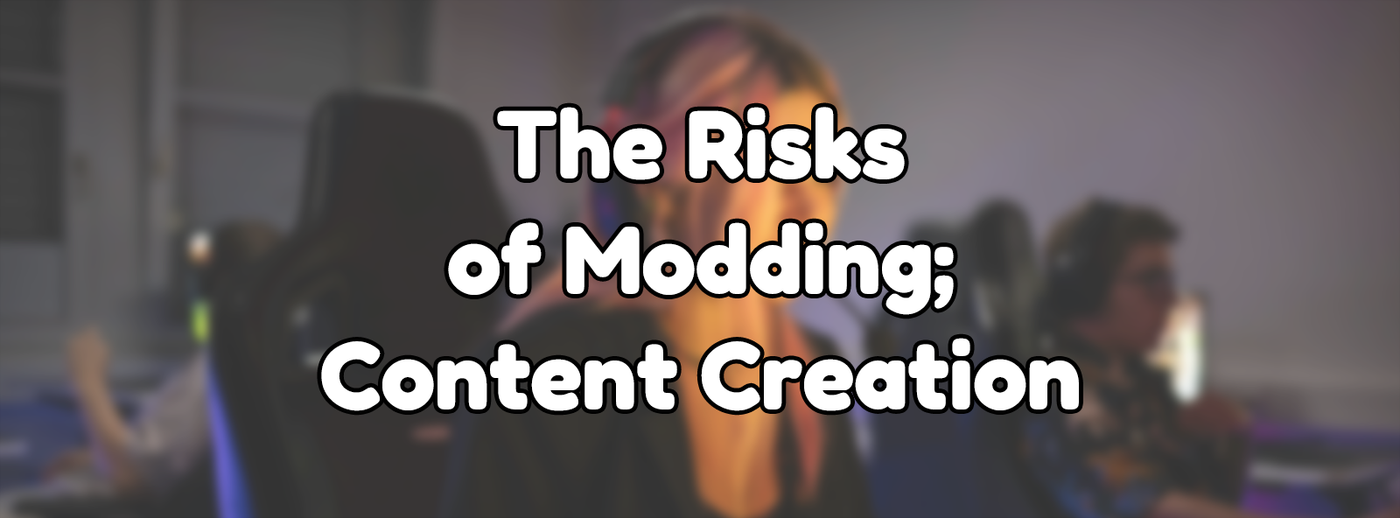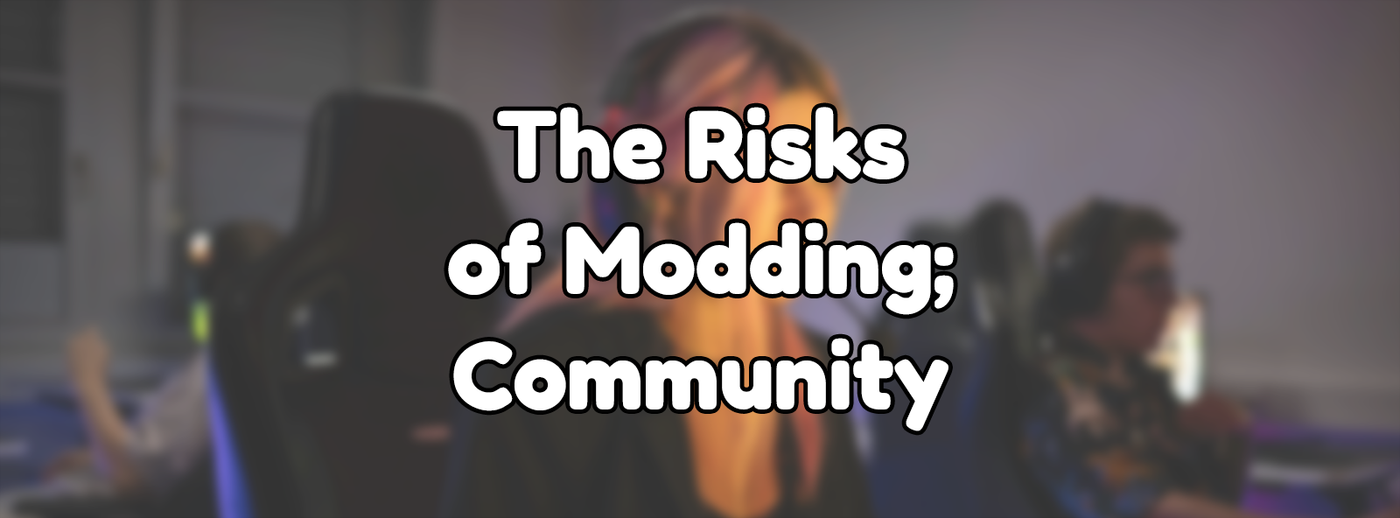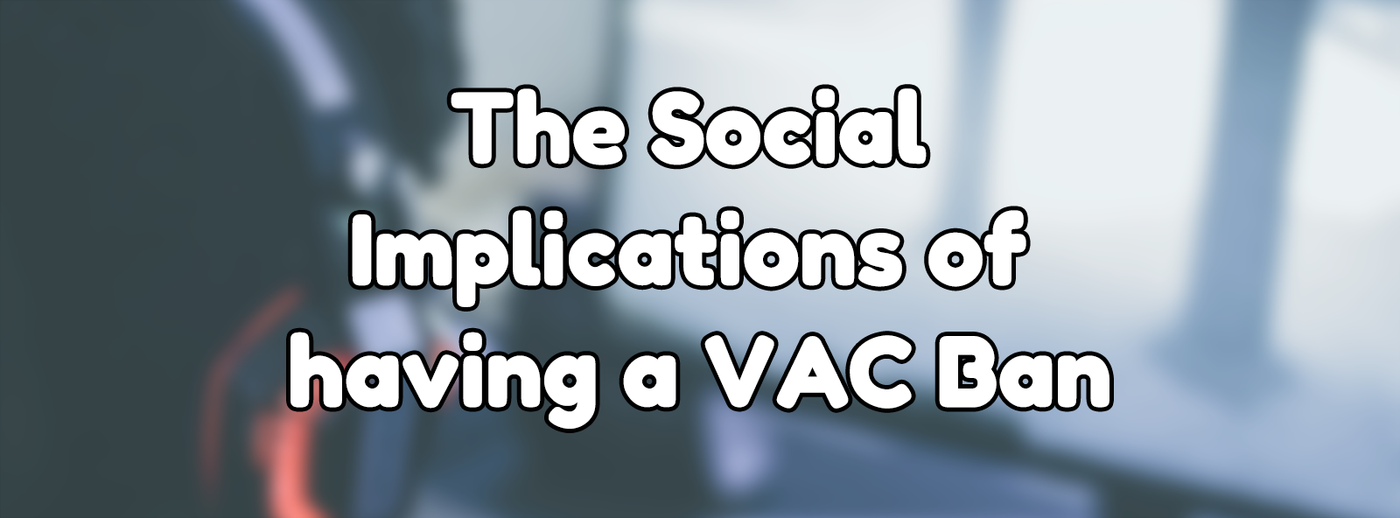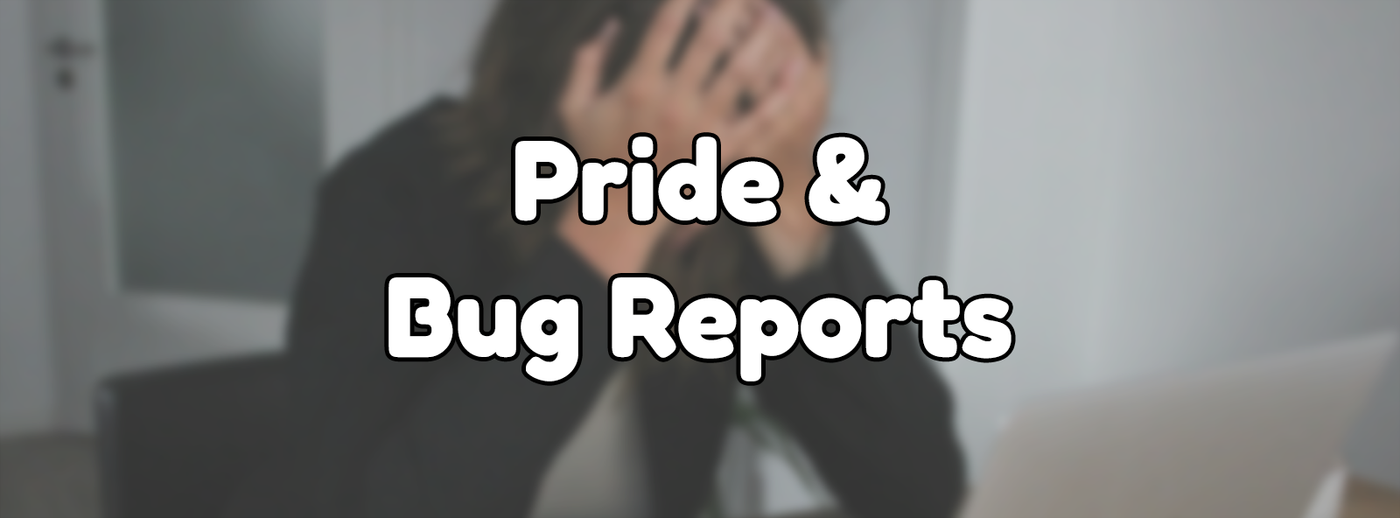
The Risks of Modding - Content Creation
Posted on Nov 21, 2025 by Maddy Miller
In Games with tags Community, Retrospective
Part 1 in a series on Risks Of Modding
1299 words, 5 minutes to read
Over the years, one of the most frequent questions I’ve been asked is “What do you wish you knew before you got into game modding?” I feel that it being a lot of work without pay is the obvious one, it’s fundamentally a hobby, but I also feel that there’s a lot of unspoken problems around safety and mental health which people don’t expect going in. I’m writing this series mostly to let people know of these risks, especially prospective game modders. I don’t want to dissuade people from modding if it’s what they want to do, but I feel it’s important to jump into anything with an informed opinion.
Modding games has always been a large part of me. I’ve never been a massive gamer, so during my school years modding games was my way of socialising with those who were. Arguably I started modding back in primary school, writing Squeak to modify Scratch by MIT, to add new commands for a horrifically low-quality 2D RuneScape inspired game that I was working on. I moved onto modding The Powder Toy, for which I wrote two separate mods, then moved onto Minecraft modding.
While I have written my own small games in the past, and my own projects, there’s something that’s always interested me about modding. Having to work within the constraints of an existing game, especially when working purely on the server-side, almost feels reminiscent of the constraints when working with early hardware. You can’t just make anything, you need to figure out clever ways to do it. Early in the Minecraft server scene, it honestly felt like this. The game was very barebones, especially when it came to multiplayer, and people were actually making discoveries.
Modding is a labour of love for a game or project, but it’s also in its own way a game of its own. Over the 15+ years that I’ve been modding though, it feels like things have slowly shifted. Mods have become mainstream, and easy to install. This is overall very good for modding, making it accessible to those outside of groups of very dedicated and technical fans, however it comes with some risks that I don’t feel modding communities are very good at resolving or mitigating.
Modders are content creators too
Modding is a form of content creation. While it does feel the term has shifted recently more to refer to video content, mods are a type of content that creators make and publish. Content creators across the board are at risk from unwanted interactions and threats to their safety from their communities, even when no ill intention is meant. This can vary based on how public facing a content creator actually is. For example, streamers or YouTubers who show their face/voice during their videos are at a higher risk than someone who conceals their identity.
Most modders are a bit more removed to an extent, as outside of a few specific circumstances, people are usually fans of mods themselves rather than their creators. Even in cases where someone might like a few mods by the same creator, there’s usually a fairly large difference between that and a content creator who themselves is a part of their content.
This changes though, when it comes to customer support. It’s very normalised to have access to modders, to be able to report issues to them, and to be able to ask them for help when you run into issues. This isn’t really typical of most other forms of content creation. Some might have Patreon-locked Discord servers where fans might interact with the creator, but most creators would be warned and taught about the dangers of parasocial relationships from fellow creators before doing this. Creating that “special access” space is a conscious monetisation decision. For modders, it’s an expectation, and one that doesn’t come with warnings.
To clarify, I am not saying modders have it worse- I very much DO NOT think that. I believe I would’ve had a significantly worse time if the thing I made had my face and voice attached to it. My concern here, is that the risks that modders do face are not adequately talked or warned about.
Parasocial interactions with modders
Parasocial interactions with modders mostly develop through support interactions but can similarly occur in other analogous channels. Forum threads discussing the mod, fan communities in platforms such as Discord, or even direct messages on various platforms. It might be a few harmless interactions. Someone who’s used a mod for a while sends a message of encouragement, asks a quick question, or suggests a new feature. Over time they see the modder post new updates and they continue to use the software, slowly starting to build that attachment with the modder directly due to the building mental association.
These situations have an inherent fan dynamic that allows parasocial relationships to flourish, but also a lower barrier of entry due to modders generally not being viewed as “famous” or popular- that’s attributed to their mods.
Ways I’ve reduced this risk
While I do feel that this is a cultural issue within gaming and other communities, there are some things that I have done to reduce the risk of parasocial interaction.
Most modders are proud of their software. They want people to have a good experience with it and will go above and beyond to make sure that it’s working for people. This is something that I did for the longest time. Being helpful is a large part of my personality, I am drawn to support-adjacent roles within my field. Not only can this be emotionally exhausting, it’s also a major risk factor for parasocial relationships.
I would help people with my mods wherever they contacted me, join their Minecraft servers to help investigate issues, and generally put in large amounts of effort to make sure that they were having a good experience. While I do feel that for smaller mod communities, this can help foster that sense of community and grow your mod, it’s actively unsafe to do this with well-established projects.
After numerous parasocial incidents occurring, including one where someone recognised me on the street and acted like we were good friends, I changed the way I did software support.
I started to only provide support in the official support channels, explicitly refusing to provide support via DMs. This was partially to prevent people from feeling like they were receiving special treatment, but also due to the large number of DM support requests that slowly devolve to other things. I do not show any one person more attention than others in those support channels. In the case that there is a larger issue multiple people are experiencing that I need to investigate further, I’ll try to keep everything not directed at one specific person discussing the issue.
Finally, I generally have toned down how friendly I am in these spaces. It’s better to leave someone without a response to a “thank you,” than to have them misinterpret your response as something more. I try to provide minimal responses to compliments, and in general attempt to ensure that support conversations don’t resemble social conversations. It doesn’t come naturally for me to do this, and it can sometimes come across as cold which I’m not happy about, but it has honestly been an important change for me to remain safe.
Conclusion
Modding games is something that I find deeply rewarding, and a unique creative outlet, but it’s also important to recognise and understand the risks that can come with it. It’s important to remember that modders are a form of content creator, albeit less referred to with that moniker as of recently, and that we’re susceptible to many of the same risks. As long as you ensure that you set boundaries, and be mindful of how you interact with your community members, modding can be fun and extremely fulfilling.
Continue reading the next part of the series: The Risks of Modding - Community



